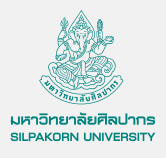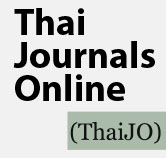
ผลกระทบทางวัฒนธรรมที่มีความเต็มใจของผู้เรียนในการพูดภาษาอังกฤษในบริบทวัฒนธรรมไทย
CULTURAL IMPACT ON LEARNER'S WILLINGNESS TO COMMUNICATE IN ENGLISH
โดย กำไลทิพย์ ปัตตะพงศ์ / By Kamlaitip Pattapong
Damrong Journal, Vol 10, No.2, 2011
บทคัดย่อ:
บทความนี้มีวัตถุประสงค์ในการนำเสนออิทธิพลของวัฒนธรรมไทยที่มีผลต่อการเลือกตัดสินใจใช้ภาษาอังกฤษในชั้นเรียนในประเทศไทย โดยอาศัยกรอบแนวคิดของ แมคอินไทร์ และคณะ (1998) เรื่องความเต็มใจในการพูดในภาษาที่สอง เป็นพื้นฐานของการวิเคราะห์ อย่างไรก็ตามกรอบแนวคิดดังกล่าวถูกสร้างขึ้นจากบริบททางวัฒนธรรมของประเทศแคนาดาซึ่งเป็นประเทศที่มีภาษาทางการสองภาษา ลักษณะดังกล่าวตรงข้ามกับบริบททางวัฒนธรรมในประเทศไทยที่มีภาษาทางการเพียงภาษาเดียว บทความนี้จึงมุ่งเน้นศึกษาเฉพาะปัจจัยที่เกี่ยวข้องกับสถานการณ์การใช้ภาษาในรูปแบบต่างๆที่พบในห้องเรียนภาษาอังกฤษในประเทศไทย รวมถึงศึกษาค่านิยมทางวัฒนธรรมของคนไทยที่มีผลต่อทัศนคติในการสื่อสารด้วยภาษาอังกฤษ ผลการศึกษาสะท้อนให้เห็นถึงอิทธิพลของคู่สนทนาซึ่งเป็นตัวแปรทางวัฒนธรรมที่มีผลต่อการตัดสินใจเลือกพูดภาษาอังกฤษของคนไทย
ABSTRACT:
This paper discusses the Thai cultural influences underlying one’s choice of speaking English in EFL classrooms in Thailand. A conceptualization of the decision to speak in a second language, which was called “Willingness to Communicate in a Second Language” by MacIntyre et al. (1998), was chosen as the foundation of the analysis. The MacIntyre model was principally developed in the bilingual context in Canada, where language resources are abundant, while the reverse is true for Thailand. Given the differences in contextual factors, this paper focuses on relevant components that come in play in different communication situations in Thai EFL classes from Thai cultural perspectives. Traditional Thai values that form ones’ attitudes in interacting with others were examined. The analysis of principles behind Thai social interactions behaviors reveals the power of “others” over oneself when making the choice to speak in English.











